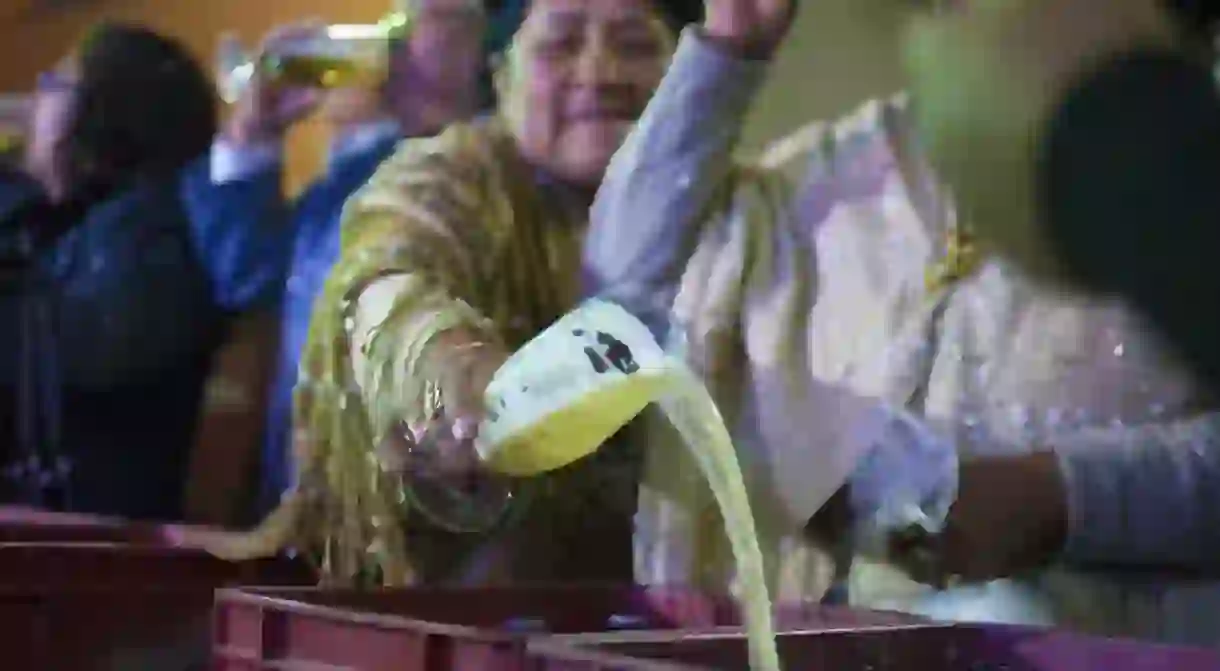A Glimpse Inside a Bolivian Wedding

Thanks to an eclectic mix of European and Andean culture, Bolivian weddings entail some interesting customs that are remarkably different to those of the west. Culture Trip spoke to renowned Bolivian based wedding photographer Sergio Echazu to find out exactly what goes on inside a typical Bolivian wedding.
Pulling chains in the church
Most Bolivian weddings begin with a religious ceremony in church, as one would expect from a predominantly catholic society. The ceremony follows standard protocol including vows being read and a priest declaring everything legit in the eyes of God. However, many Bolivians add an interesting twist which requires the godparents to wrap a fine chain around each newlywed’s neck. Each partner then tugs on their end and whoever pulls hardest is believed to become the boss of the new marriage.

Confetti straight on the head
Throwing confetti at the end of the ceremony is a popular tradition across the western world, which originated in Italy. Bolivians do things a little differently though, plonking handfuls of confetti directly onto the heads of the newlyweds rather than throwing it up into the air. Unsurprisingly, this messes up the hair of the immaculately presented couple, although thankfully it can be cleaned up easily enough.

Crossing the Puente de las Americas
In La Paz, it is customary for a newly married couple to cross the Puente de las Americas together, a well-known bridge that connects two central neighborhoods. This interesting local custom signifies the end of single life and the beginning of a important new phase. With spectacular views of southern La Paz below, the ritual also makes for a fantastic photo opportunity.

Sharing beer upon arrival
A Bolivian bride and groom aren’t actually supposed to mingle and socialize all that much on their big day. Instead, they are expected to wait at the entrance of the reception and greet guests as they arrive, many of whom rock up hours after the supposed start time. Guests should arrive with several crates of beer, the first of which is cracked open and shared among themselves and the newlyweds.

Beer Exchange
The leftover crates of beer are kept by the bride and groom and later sold to help cover some of the wedding expenses. However, the newlyweds must make a note of how many crates of beer each guest bought as they are expected to bring an equal amount of beer to their next wedding or party. The whole affair translates to a rather complex beer economy which ultimately encourages equal expenditure among all participants and a significant amount of drunkenness.

Offering beer to Mother Nature
Before getting stuck into their beer, guests should first perform a challa (offering) to pachamama (mother nature). This is typically done by pouring a portion of your first beer into a crate of beer which is believed to appease pachamama. Unsurprisingly, Bolivian weddings often end up with sticky floors and beer all over the place.

Pinning money on the groom
In western society, wishing wells are fast becoming the norm so that guests can donate money directly to the newlyweds in order to cover at least a portion of the wedding expenses. In Bolivian society, however, couples are generally not expected to have lived together before marriage so gifts of household appliances are still a common occurrence. On top of these presents, an extra gift can be given in the form of pinning cash directly onto the groom’s suit. This is believed to grant the newlyweds financial fortune in the future.

Note that the traditions discussed here are largely from the indigenous Aymara people of La Paz and the altiplano. Bolivia is a hugely diverse country with many different ethnic groups and customs, so not all Bolivians would adhere to these traditions.
If you’re after a photography session in Bolivia (including weddings), get in touch with the talented Sergio Echazu whose work has been featured in this article. Echazu has a well established reputation for delivering high quality images for a variety of events and projects.













